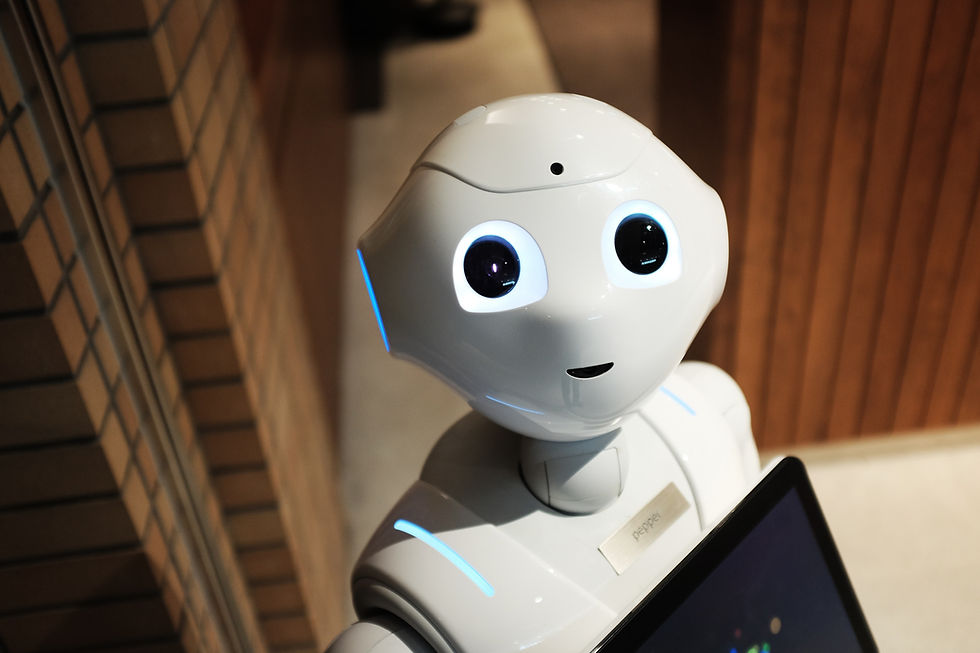𝐄𝐦𝐛𝐫𝐚𝐜𝐢𝐧𝐠 𝐇𝐮𝐦𝐚𝐧𝐢𝐭𝐲 𝐢𝐧 𝐚𝐧 𝐄𝐫𝐚 𝐨𝐟 𝐈𝐧𝐭𝐞𝐥𝐥𝐢𝐠𝐞𝐧𝐭 𝐓𝐞𝐜𝐡: 𝐀 𝐑𝐞𝐦𝐢𝐧𝐝𝐞𝐫 𝐟𝐨𝐫 𝐇𝐑 𝐏𝐫𝐨𝐟𝐞𝐬𝐬𝐢𝐨𝐧𝐚𝐥𝐬
- Paul Hill

- Apr 8, 2024
- 2 min read

In an age where technological advancements seem to redefine the landscape of work on a daily basis, the role of Human Resources (HR) professionals becomes increasingly crucial. As intelligent technologies like artificial intelligence (AI) and automation become more integrated into the workplace, it's imperative for HR professionals to remember the essence of their field: the human element.
While the benefits of intelligent tech in streamlining processes, enhancing productivity, and making data-driven decisions are undeniable, there is a risk of overlooking the human side of HR. HR isn't just about managing data or implementing new systems; it's about understanding, supporting, and empowering the people within an organization.
Here are some essential reminders for HR professionals to stay grounded in humanity as intelligent tech continues to evolve

Empathy in Employee Relations: As technology takes over routine tasks, HR professionals must double down on their empathy skills. Employees need to feel valued, understood, and supported, especially during times of change. Whether it's providing emotional support, addressing concerns, or simply lending a listening ear, empathy remains at the core of effective employee relations.
Personalized Development and Training: While AI can recommend training programs based on data analytics, HR professionals must ensure that these programs are tailored to individual needs. Recognizing the unique strengths, weaknesses, and aspirations of employees is essential for meaningful development. Human touch in training programs fosters a sense of belonging and investment in personal growth.

Ethical AI Implementation: HR professionals play a vital role in ensuring that AI technologies are implemented ethically and responsibly. This involves addressing biases in algorithms, safeguarding data privacy, and promoting transparency in decision-making processes. Upholding ethical standards not only protects employees but also preserves trust and integrity within the organization.
Cultivating a Positive Work Culture: Technology may facilitate communication and collaboration, but it's the human connections that truly shape a positive work culture. HR professionals should focus on fostering a sense of community, appreciation, and inclusivity. Organizing team-building activities, recognizing achievements, and promoting work-life balance are all ways to nurture a thriving workplace culture.
Embracing Diversity and Inclusion: In a diverse workforce, it's essential to embrace differences and foster inclusion. Intelligent tech can help identify and address disparities, but it's up to HR professionals to champion diversity initiatives and create an environment where every voice is heard and respected.

Continuous Learning and Adaptation: The rapid pace of technological advancement requires HR professionals to be lifelong learners. Staying updated on emerging trends, acquiring new skills, and adapting to changing circumstances are essential for remaining relevant in the field. Embracing a growth mindset not only benefits individual career development but also enables HR professionals to better support the evolving needs of their organization.
Human-Centric Leadership: As leaders within their organizations, HR professionals have the opportunity to set an example of human-centric leadership. By prioritizing empathy, integrity, and authenticity, they can inspire trust and loyalty among employees. Leading with humanity fosters a culture of collaboration, innovation, and resilience.
In conclusion, while intelligent technologies continue to reshape the workplace, HR professionals must remember that their ultimate responsibility lies in nurturing the human side of organizations. By embracing empathy, ethics, and inclusivity, they can ensure that technology complements rather than replaces the invaluable contributions of people. In an increasingly automated world, staying human remains the hallmark of effective HR management.


Comments